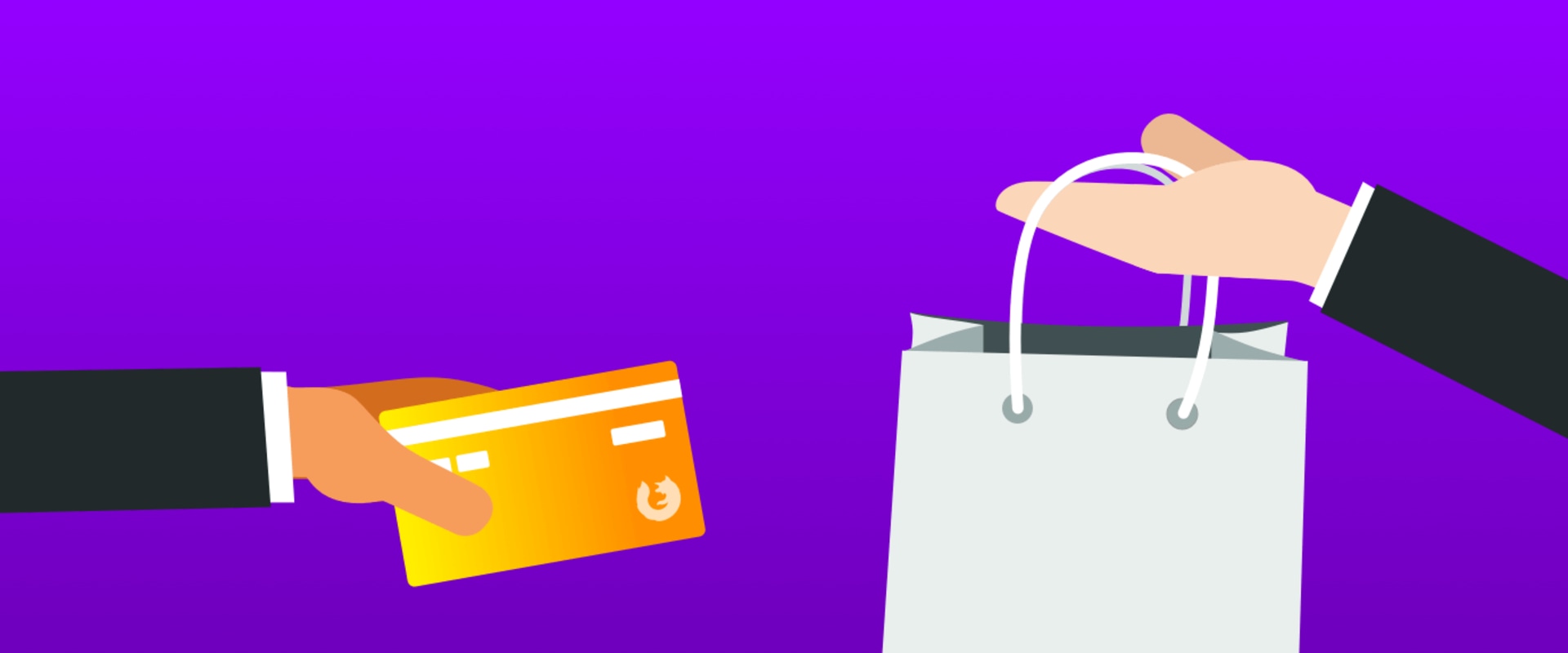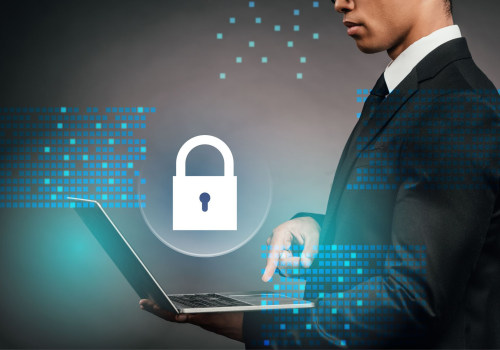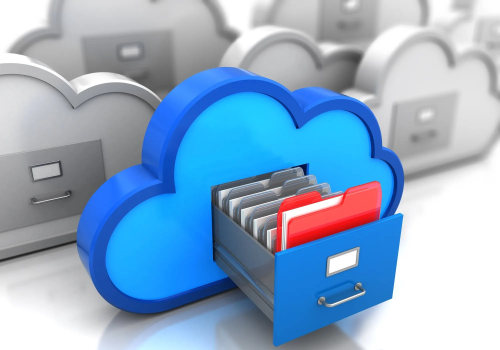As the world has become more and more connected, the ability to shop online has become increasingly popular. With the convenience of online shopping, however, comes potential risks. Shopping online can be a great way to find the best deals and save time, but it is important to take precautions to ensure your safety. In this article, we will discuss tips for safe online shopping so that you can make informed decisions when shopping online. Shopping online is convenient and efficient, but it also carries some risks.
It's important to take the necessary precautions to ensure that your online shopping experience is safe and secure. In this article, you'll learn essential tips and advice to stay safe while shopping online. Creating strong passwords is an important part of staying safe online. Passwords should be at least 8 characters long, and include a combination of letters, numbers, and symbols. Additionally, it's important to use different passwords for each of your online accounts.
This way, if one account is compromised, the others will remain secure. In order to identify secure websites, look for the “https” in the URL. This indicates that the website is using a secure connection to protect the data you are entering. It's also important to look out for other signs, such as a padlock icon next to the URL or a “Secure” label in the browser window. Two-factor authentication (2FA) adds an extra layer of security by requiring two forms of authentication before allowing access. This could be a combination of a password and a code sent to your phone or email address.
It's an effective way to protect your accounts from unauthorized access. Using separate payment accounts for online purchases is another way to protect yourself from fraud. Keeping different accounts for different types of purchases can help you track your spending more easily and reduce the risk of your credit card information being stolen. Virtual Private Networks (VPNs) are another way to stay safe online. VPNs encrypt your data so that it cannot be intercepted by hackers or other third parties. They also allow you to browse anonymously, making it harder for anyone to track your online activity. When using public Wi-Fi networks, it's important to be aware of potential risks.
Look out for networks with “open” or “public” in their name as these are more likely to be unsecured. To stay safe, always use a VPN when connecting to public networks. Malicious websites can be identified by several signs, such as spelling mistakes, broken links, and unexpected pop-up windows. If you encounter any of these signs, it's best to leave the website immediately. Phishing attacks occur when malicious actors try to trick you into giving away your personal information or payment details. Be wary of any emails or links that ask for sensitive information or appear suspicious in any way.
Protecting your data
when shopping online is essential.Look out for websites that have secure payment processing systems, such as PayPal or Apple Pay. Additionally, make sure that the website uses encryption technology to protect your data while it is in transit. Purchasing identity theft protection is also important when shopping online. Look for a service that monitors your accounts for suspicious activity and provides credit monitoring and identity theft insurance. If you do become a victim of online fraud, report it immediately. Contact your bank or credit card company and explain what happened.
They can help you cancel any unauthorized transactions and investigate the incident further. By following these tips, you can keep yourself safe while shopping online. It's important to stay vigilant and take the necessary steps to protect yourself from potential scams.
Identify Secure Websites
When it comes to online shopping, it's important to make sure you're on a secure website. To identify secure websites, look for a URL beginning with “HTTPS” instead of “HTTP”. You should also look for the lock icon in the address bar.This indicates that the website has a valid security certificate, meaning your personal information is protected. Checking a website’s security certificate is important because it ensures that your connection is encrypted and any data shared between you and the website is safe from hackers. For added protection, you should always double-check the URL to make sure it matches the site you want to visit.
Create Strong Passwords
Creating strong passwords is essential for online security. A strong password should be hard to guess, yet easy to remember. It should be at least eight characters long, and include a mix of upper and lower case letters, numbers, and symbols.An example of a strong password could be: J@cKs0n!1.A weak password, on the other hand, is one that is easy to guess or hack. Common examples of weak passwords include names, dates of birth, numbers in sequence (such as 12345), and words spelled backwards (such as ‘drowssap’).Password managers can help users create and manage secure passwords. Password managers are programs that store all of your passwords in an encrypted form. This means that you only need to remember one master password to access them all. Using a password manager can help you create stronger passwords, and save you the hassle of having to remember multiple passwords.
It also means that you can use different passwords for each of your accounts, making it harder for hackers to get access to all of your accounts if one is compromised.
Create Separate Payment Accounts
Creating separate payment accounts for online purchases is one of the best ways to protect yourself from potential risks associated with shopping online. Payment accounts that are dedicated solely to online shopping can help you keep track of your purchases and limit your exposure to any potential fraud or security breaches. One of the most popular options for creating a payment account for online purchases is to use prepaid cards or virtual credit cards. These cards are separate from your primary credit card, and they often have much lower spending limits, making them a safe option for online purchases.Additionally, if your prepaid card or virtual credit card is compromised, you won’t have to worry about any of your other accounts being affected. If you prefer not to use a prepaid card or virtual credit card, you can also set up a payment account with a secure provider. Many banks and payment processors offer secure payment accounts specifically designed for online shopping. These accounts are typically protected by encryption and fraud detection technology, so you can shop with confidence knowing that your information is safe.
Use Virtual Private Networks (VPNs)
A Virtual Private Network, or VPN, is a service that encrypts your data and secures it when you're shopping online. It prevents hackers from accessing your personal information like passwords, bank accounts, and other sensitive information. VPNs also hide your IP address and location, making it more difficult for cybercriminals to track your online activity. When you use a VPN, all of your internet traffic is routed through a secure server before it reaches the website you're visiting. This ensures that your data is encrypted and protected from any eavesdroppers.It also prevents companies from tracking your online activities. There are many reliable VPN services available. Some of the most popular ones include NordVPN, ExpressVPN, and Surfshark. All of these services offer strong security features, such as AES-256 encryption and support for multiple protocols. They also have servers located in multiple countries, so you can choose one that's closest to where you're shopping. It's important to use a reputable VPN provider to ensure that your data is properly encrypted.
Make sure to read reviews about the different VPN services before you decide which one to use.
How To Protect Yourself Against Phishing Attacks
Phishing attacks are a type of cyberattack that takes advantage of people's trust in a website or business. This type of attack typically involves the attacker sending an email or message that looks like it is coming from a legitimate source, such as a bank, but is actually malicious. The attacker will then try to get the victim to provide sensitive information, such as usernames and passwords, that can be used to gain access to their accounts. Common phishing tactics include emails or messages asking for personal information, such as login credentials, or links to websites that look legitimate but are actually malicious.It is important to be vigilant when opening emails or clicking links from unknown sources, as they may contain malicious code or be used to redirect users to a malicious website. Tools such as PhishTank can be used to check whether a website is safe or not. These tools analyze websites for malicious content and offer users the ability to report suspicious websites. In addition, users can use antivirus software and firewalls to protect themselves against malicious websites and other cyber threats.
How To Protect Your Data When Shopping Online
When shopping online, it's important to take the necessary steps to ensure your data is safe and secure.Strong passwords, two-factor authentication, and virtual private networks (VPNs) are just a few of the steps you can take to protect your data. A strong password is the first line of defense against hackers. This means using a combination of upper and lower case letters, numbers, and special characters. It's also important to change your passwords regularly and avoid using the same password for multiple accounts. Two-factor authentication (2FA) is another way to keep your data secure while shopping online.
This requires you to enter an additional piece of information, such as a code sent via text or email, in addition to your username and password. This provides an extra layer of security in case your password is compromised. Using a Virtual Private Network (VPN) can also help protect your data when shopping online. A VPN encrypts your internet traffic, making it much harder for hackers to access your personal information. Finally, you can use tools such as Privacy Badger to check whether a website is tracking your data or not.
Privacy Badger will block tracking requests from websites that collect and store your personal information without permission.
Signs That A Website May Be Malicious
Typos and Grammatical ErrorsWhen browsing online, it's important to be wary of websites that have typos and grammatical errors in their text. Poorly written website content can be a sign of malicious intent and should be treated with caution. Websites that include typos or grammatical errors in their text may indicate that the website is not legitimate and should be avoided.Asking For Too Much Personal Information
Another sign that a website may be malicious is if it asks for too much personal information. Legitimate websites will only ask for the necessary information to complete a transaction, such as your name, address, and payment details.If a website is asking for more personal information than necessary, it may be an indication that the website is malicious.
Using Tools To Check For Safety
To ensure a safe online shopping experience, you can use tools such as Web of Trust (WOT) to check whether a website is safe or not. WOT provides ratings for millions of websites based on user reviews, so you can quickly and easily identify which websites are safe to visit and which ones should be avoided.The Importance Of Purchasing Identity Theft Protection
Identity theft protection is an essential tool for online shoppers to use in order to protect their personal information and financial data. By using an identity theft protection service, users can help ensure that their online shopping experience is safe and secure. Identity theft protection services monitor a user's credit report and alert them of any suspicious activity, as well as provide helpful assistance in the event of identity theft. Identity theft protection services offer a variety of advantages.They can help to prevent identity theft by monitoring credit reports and alerting customers of any suspicious activity. Additionally, they provide help in the event of identity theft, such as providing advice on how to handle the situation and offering assistance with credit repair. Furthermore, identity theft protection services often include other features such as dark web monitoring and credit score monitoring. When looking for an identity theft protection service, it is important to choose one that is reliable and trustworthy. Some reputable services include LifeLock, Experian IdentityWorks, and IdentityForce.
These services offer a variety of features and benefits, such as 24/7 monitoring of credit reports and alerts of suspicious activity. Additionally, they provide helpful assistance in the event of identity theft. In conclusion, purchasing identity theft protection is an important step for online shoppers to take in order to ensure their personal information and financial data are safe and secure. Identity theft protection services offer a variety of advantages, such as monitoring credit reports, alerting customers of suspicious activity, and providing assistance in the event of identity theft. When choosing an identity theft protection service, it is important to select one that is reliable and trustworthy.
Tips For Using Public Wi-Fi Networks Safely
Using Public Wi-Fi Networks SafelyUsing public Wi-Fi networks can be convenient, but it is important to be aware of the potential risks associated with them.It is important to take necessary precautions when using public networks to keep your data safe and secure. Here are some tips on how you can stay safe while using public Wi-Fi networks:Use a Virtual Private Network (VPN): A VPN creates an encrypted connection between your computer and the internet, keeping your data safe from hackers. Whenever you connect to a public Wi-Fi network, make sure to activate your VPN.
Avoid Connecting to Unsecured Networks:
It is important to make sure that you are connecting to a secure network before entering any personal information. Check to make sure the network is password protected and does not have any suspicious names.Avoid Accessing Sensitive Information:
You should avoid accessing sensitive information such as bank accounts, credit cards, or private emails while connected to a public Wi-Fi network.It is best to wait until you are connected to a secure network before accessing this type of information.
Use Secure Websites:
Even when connected to a secure network, it is important to use websites with secure connections (HTTPS). This will help protect your data from being intercepted.What To Do If You Are A Victim Of Online Fraud
Online shopping is a great way to save time and money, but there is always the risk of becoming a victim of fraud. It's important to take the necessary precautions to protect yourself from online fraud and to know what steps to take if you become a victim. If you suspect that you have been the victim of online fraud, it's important to report it immediately.Contact your bank or credit card company and inform them of the situation. Provide as much information as possible so that they can investigate the matter. You should also consider filing a police report with your local law enforcement agency, as well as reporting the fraud to the Federal Trade Commission (FTC).Reporting fraud right away will not only help protect you from further losses, but it can also help prevent other people from becoming victims of the same fraud. The FTC also provides resources to help victims resolve identity theft and other types of online fraud.
By taking a few simple precautions and knowing what steps to take if you become a victim of online fraud, you can ensure that your online shopping experience is safe and secure.
Use Two-Factor Authentication
Two-factor authentication (2FA) is an extra layer of security for online accounts that requires two pieces of evidence to authenticate the user. This usually includes a password and a second authentication method, such as a one-time code sent via text message or an app on your smartphone. 2FA is an effective way to protect your online accounts from unauthorized access, as it requires both the password and the second authentication method in order to gain access. There are a number of ways two-factor authentication can help keep user data safe. First, it adds an extra layer of security to any account, as it requires two pieces of evidence to gain access.It also helps protect against phishing attacks, as the user is required to enter both their password and the second authentication method. Finally, it helps protect against hackers, as even if they manage to gain access to the user's password, they will still need the second authentication method in order to gain access. Two-factor authentication is available on many popular websites and apps. To enable it, users simply need to go to their security settings and turn on two-factor authentication. Once enabled, users will be required to enter both their password and the second authentication method every time they log into their account.
This extra layer of security can make a huge difference when it comes to protecting user data. In conclusion, staying safe while shopping online requires vigilance and knowledge. By creating strong passwords, identifying secure websites, using two-factor authentication, creating separate payment accounts, using virtual private networks (VPNs), tips for using public Wi-Fi networks safely, identifying signs that a website may be malicious, protecting yourself against phishing attacks, protecting your data when shopping online, purchasing identity theft protection, and taking action if you are a victim of online fraud, you can ensure that your online shopping experience is as secure as possible. Remember to always be aware of potential scams and take steps to protect your personal information.







